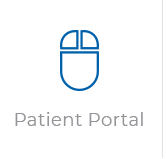Part 2: Medication Effects on the Voice Function

The next couple blogs will focus on common medications and how they can affect vocal function. Today we will specifically focus on antihypertensive medications. We will specifically focus on to classes of blood pressure medications - angiotensin-converting enzyme inhibitors (ACE-I) andangiotensin receptor blockers (ARBs.)
Both ACE-I and ARBs are common medications utilized to control elevated blood pressure. They work by blocking the effects of angiotensin, a chemical that narrows blood vessels. By doing so, they help widen the blood vessel and allow blood to flow more easily, which lowers the blood pressure. This also reduces stress on the heart. Unfortunately, they both can cause side effects which are specific to the throat and voice.
A common side effect of both classes of medications is a nagging, dry cough. Symptoms can start at the onset of medication use. However,side effects can also develop years later. In general, patients who develop a cough while on this medication can be difficult to treat. Symptoms can include a dry cough, but also can present as a lump in the throat sensation or a constant need to clear one’s throat. Often patients will have to be switched to a different class of blood pressure medication in order to improve the cough. Is always advised to seek evaluation by an ENT physician or Laryngologist for the cough as there can be other causes. However, if an endoscopy is normal, the patient is often referred back to their primary care physician to discuss other options for blood pressure control. Some common ACE inhibitors and ARBs are listed below.
ACE inhibitors ARBs
Lisinopril Azilsartan
Quinapril Candesartan
Ramipril Eprosartan
Benazepril Irbesartan
Captopril Losartan
Enalapril Valsartan

By Andrew Celmer, M.D. - MMC Comprehensive ENT Specialists






